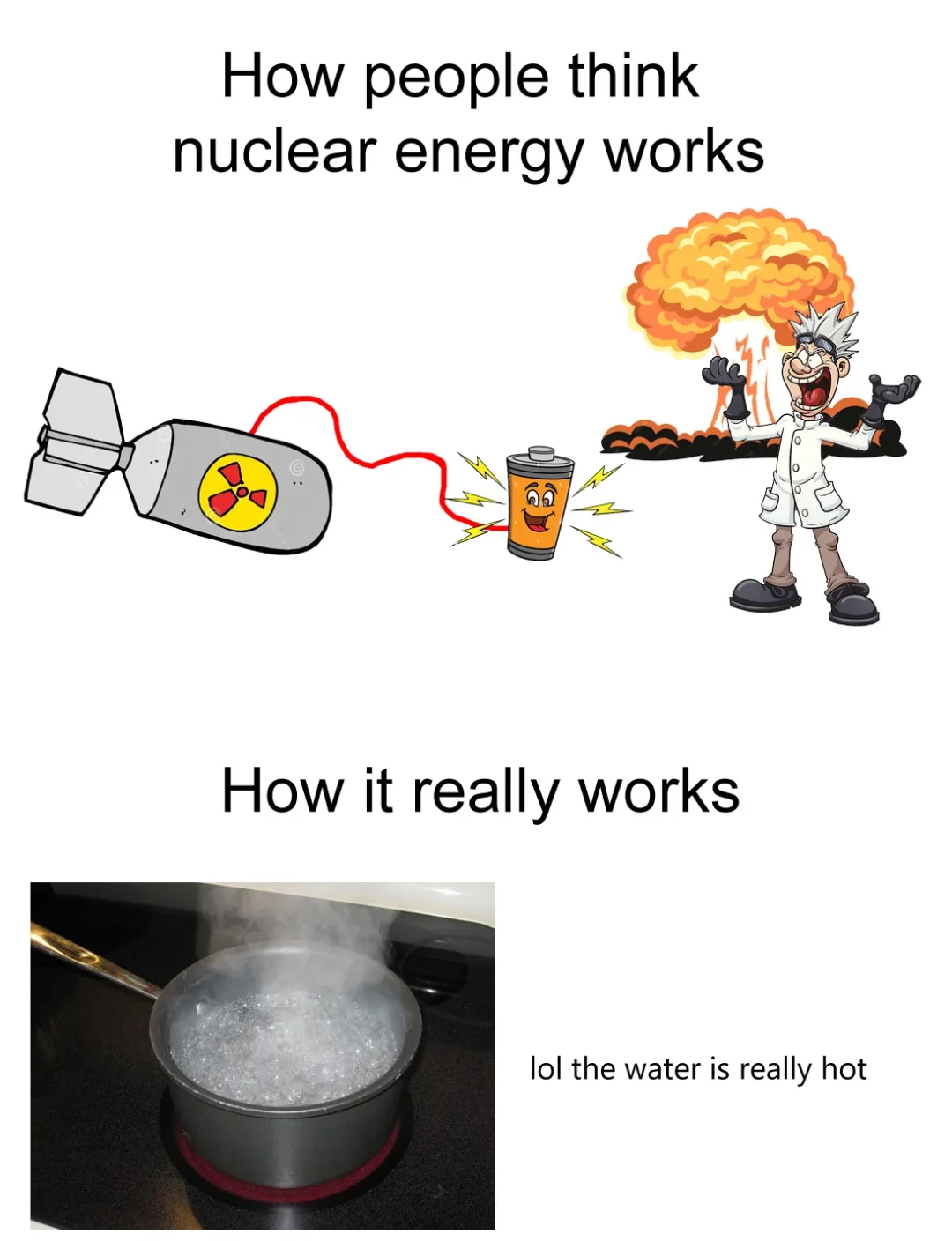this post was submitted on 15 Dec 2024
973 points (96.9% liked)
Science Memes
11399 readers
497 users here now
Welcome to c/science_memes @ Mander.xyz!
A place for majestic STEMLORD peacocking, as well as memes about the realities of working in a lab.

Rules
- Don't throw mud. Behave like an intellectual and remember the human.
- Keep it rooted (on topic).
- No spam.
- Infographics welcome, get schooled.
This is a science community. We use the Dawkins definition of meme.
Research Committee
Other Mander Communities
Science and Research
Biology and Life Sciences
- [email protected]
- [email protected]
- [email protected]
- [email protected]
- [email protected]
- [email protected]
- [email protected]
- [email protected]
- [email protected]
- [email protected]
- [email protected]
- [email protected]
- [email protected]
- [email protected]
- [email protected]
- [email protected]
- [email protected]
- [email protected]
- [email protected]
- [email protected]
- [email protected]
- [email protected]
- [email protected]
- [email protected]
- !reptiles and [email protected]
Physical Sciences
- [email protected]
- [email protected]
- [email protected]
- [email protected]
- [email protected]
- [email protected]
- [email protected]
- [email protected]
- [email protected]
Humanities and Social Sciences
Practical and Applied Sciences
- !exercise-and [email protected]
- [email protected]
- !self [email protected]
- [email protected]
- [email protected]
- [email protected]
Memes
Miscellaneous
founded 2 years ago
MODERATORS
you are viewing a single comment's thread
view the rest of the comments
view the rest of the comments

Also, solar trackers are a big deal for large farms when you start to scale above residential. Those trackers physically moving the panels to optimize generation are moving pieces.
this is sort of true, it depends on the array, but from what i understand, unless you're doing an experimental array, it's most common to just use fixed axis mounted panels, it's much cheaper and more cost effective that way. Ideally you would use a tracking array, which is better, but more complicated, and requires significantly more maintenance and investment. Single axis tracking arrays might be a clever solution to this problem though.
Regardless, it's not relevant to the grid inertia problem at hand.
I dont think this is true.